
Carousel is the second musical by the team of Richard Rodgers (music) and Oscar Hammerstein II. The 1945 work was adapted from Ferenc Molnár's 1909 play Liliom, transplanting its Budapest setting to the Maine coastline. The story revolves around carousel barker Billy Bigelow, whose romance with millworker Julie Jordan comes at the price of both their jobs. He participates in a robbery to provide for Julie and their unborn child; after it goes tragically wrong, he is given a chance to make things right. A secondary plot line deals with millworker Carrie Pipperidge and her romance with ambitious fisherman Enoch Snow. The show includes the songs "If I Loved You", "June Is Bustin' Out All Over" and "You'll Never Walk Alone". Richard Rodgers later wrote that Carousel was his favorite of all his musicals.

Gibsonton, sometimes nicknamed Gibtown, is an unincorporated community and census-designated place in Hillsborough County, Florida, United States. U.S. Route 41 runs through the center of the community. The population was 18,566 at the 2020 census, up from 14,234 at the 2010 census.

James Albert Varney Jr. was an American actor and comedian. He is best known for his comedic role as Ernest P. Worrell, for which he won an Emmy Award, as well as appearing in films and numerous television commercial advertising campaigns. He played Jed Clampett in a film adaptation of The Beverly Hillbillies (1993) and also covered a song for the film titled "Hot Rod Lincoln". He voiced Slinky Dog in the first two films of the Toy Story franchise (1995–1999). He died of lung cancer on February 10, 2000, leaving two posthumous releases, Daddy and Them and Atlantis: The Lost Empire.
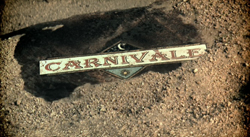
Carnivàle is an American television series set in the United States Dust Bowl during the Great Depression of the 1930s. The series, created by Daniel Knauf, ran for two seasons between 2003 and 2005. In tracing the lives of disparate groups of people in a traveling carnival, Knauf's story combined a bleak atmosphere with elements of the surreal in portraying struggles between good and evil and between free will and destiny. The show's mythology draws upon themes and motifs from traditional Christianity and gnosticism together with Masonic lore, particularly that of the Knights Templar order.
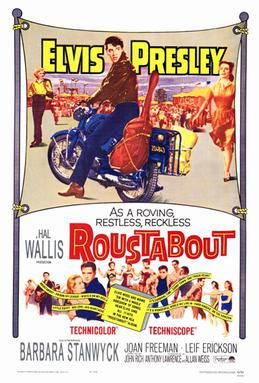
Roustabout is a 1964 American musical feature film starring Elvis Presley as a singer who takes a job working with a struggling carnival. The film was produced by Hal Wallis and directed by John Rich from a screenplay by Anthony Lawrence and Allan Weiss. The screenplay was nominated for a Writers Guild of America award for best written American musical although Roustabout received a lukewarm review in Variety. The film's soundtrack album was one of Elvis Presley's most successful, reaching no. 1 on the Billboard Album Chart. It was filmed in Techniscope at Paramount Studios, with carnival sequences shot in Thousand Oaks, California. Filming began in March 1964.

Joseph Schildkraut was an Austrian-American actor. He won an Oscar for his performance as Captain Alfred Dreyfus in the film The Life of Emile Zola (1937). He was nominated for a Golden Globe for his performance as Otto Frank in the film The Diary of Anne Frank (1959) and a Primetime Emmy for his performance as Rabbi Gottlieb in a 1962 episode of the television series Sam Benedict.
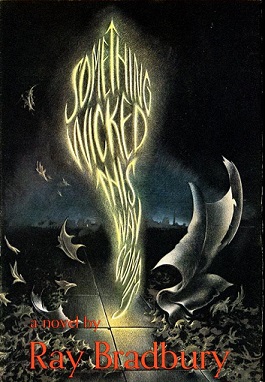
Something Wicked This Way Comes is a 1962 dark fantasy novel by Ray Bradbury, and the second book in his Green Town Trilogy. It is about two 13-year-old best friends, Jim Nightshade and William Halloway, and their nightmarish experience with a traveling carnival that comes to their Midwestern home, Green Town, Illinois, on October 24. In dealing with the creepy figures of this carnival, the boys learn how to combat fear. The carnival's leader is the mysterious "Mr. Dark", who seemingly wields the power to grant the townspeople's secret desires. In reality, Dark is a malevolent being who, like the carnival, lives off the life force of those it enslaves. Mr. Dark's presence is countered by that of Will's father, Charles Halloway, the janitor of the town library, who harbors his own secret fear of growing older because he feels he is too old to be Will's dad.

Howling VI: The Freaks is a 1991 British direct-to-video horror film directed by Hope Perello, from a screenplay by Kevin Rock, starring Brendan Hughes, Bruce Payne, Michele Matheson, Sean Gregory Sullivan,, and Carol Lynley. The Freaks is the sixth entry in the series of eight standalone films with a loose continuity.
"Bart Carny" is the twelfth episode of the ninth season of the American animated television series, The Simpsons. It originally aired on Fox in the United States on January 11, 1998. Homer and Bart start working at a carnival and befriend a father and son duo named Cooder and Spud. It was written by John Swartzwelder, directed by Mark Kirkland and guest stars Jim Varney as Cooder the carny. The episode contains several cultural references and received a generally mixed critical reception.

"Hey, Rube!" is a slang phrase most commonly used in the United States by circus and traveling carnival workers ("carnies"), with origins in the middle 19th century. It is a rallying call, or a cry for help, used by carnies in a fight with outsiders. It is also sometimes used to refer to such a fight: "The clown got a black eye in a Hey, Rube."
"The Wife Aquatic" is the tenth episode of the eighteenth season of the American animated television series The Simpsons. It originally aired on the Fox network in the United States on January 7, 2007. The episode was written by Kevin Curran and directed by Lance Kramer.

A traveling carnival, usually simply called a carnival, travelling funfair or travelling show, is an amusement show that may be made up of amusement rides, food vendors, merchandise vendors, games of chance and skill, thrill acts, and animal acts. A traveling carnival is not set up at a permanent location, like an amusement park or funfair, but is moved from place to place. Its roots are similar to the 19th century circus with both being fitted-up in open fields near or in town and moving to a new location after a period of time. In fact, many carnivals have circuses while others have a clown aesthetic in their decor. Unlike traditional Carnival celebrations, the North American traveling carnival is not tied to a religious observance.

Tony Hawk in Boom Boom Sabotage is a 2006 animated sports film starring Tony Hawk, produced by Mainframe Entertainment. FUNimation Entertainment distributed the film in the United States, while Alliance Atlantis distributed it in Canada. In Mainframe's earlier versions of the film, it used cel-shaded characters. Some of the early designs can still be seen on Mainframe's website.

Liliom is a 1909 play by the Hungarian playwright Ferenc Molnár. It was well known in its own right during the early to mid-20th century, but is best known today as the basis for the Rodgers and Hammerstein 1945 musical Carousel.
Geek shows were an act in traveling carnivals and circuses of early America and were often part of a larger sideshow.
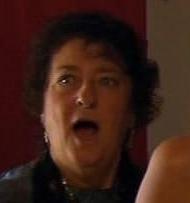
Floss McPhee is a fictional character from the Australian television soap opera Home and Away, played by Sheila Kennelly. The character made her first screen appearance on 17 January 1988, which was the show's pilot episode. She departed in 1989, when she was written out of the series along with Frank Lloyd who played her on-screen husband Neville McPhee. However she has made sporadic returns first in 2000, for Sally Fletcher's wedding storyline and again in 2002, 2004 and 2008, for various story arcs.

Carny is a 1980 American drama film about a waitress who joins a traveling carnival. It stars Gary Busey, Jodie Foster, and Robbie Robertson. It also includes an early role for Fred Ward.

Carny is a 2009 Canadian television horror film by Syfy and the 17th film in the Maneater Series. The film was directed by Sheldon Wilson and stars Lou Diamond Phillips.
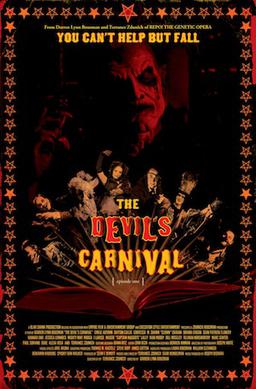
The Devil's Carnival is a 2012 American musical horror film directed by Darren Lynn Bousman and starring Sean Patrick Flanery, Briana Evigan, Jessica Lowndes, Paul Sorvino, Emilie Autumn and Terrance Zdunich. The film marks the second collaboration of Bousman and writer/actor Terrance Zdunich, their previous work being the musical film Repo! The Genetic Opera. The film also brings back several of the cast members of Repo!, such as Sorvino, Alexa Vega, Bill Moseley and Nivek Ogre. The Devil's Carnival has Aesop's Fables and other folklore at the core of its story, with the main characters each representing a fable. Flanery's character John represents "Grief and His Due", Evigan's character Merrywood represents "The Dog and Its Reflection", and Lowndes' character Tamara represents "The Scorpion and the Frog", an animal fable that seems to have first emerged in Russia.
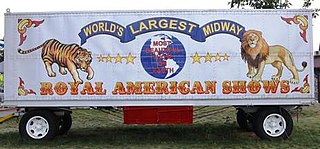
Royal American Shows (RAS) were a leading American traveling carnival company that operated from the 1920s to the 1990s in the United States and, until the 1970s, in Canada. The company promoted itself as the "Most Beautiful Show on Earth", with the "World's Largest Midway."


















